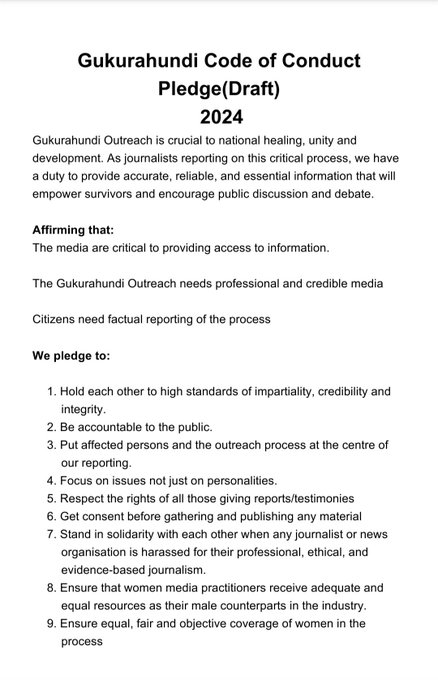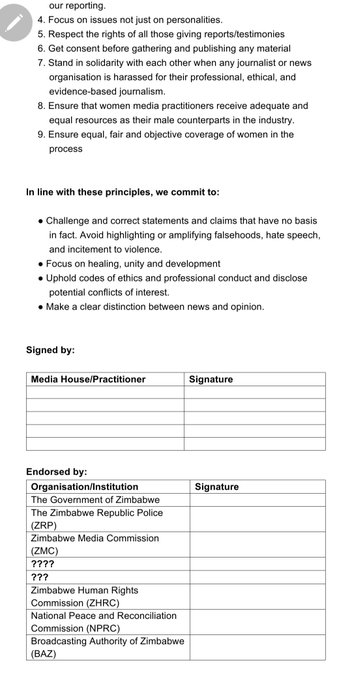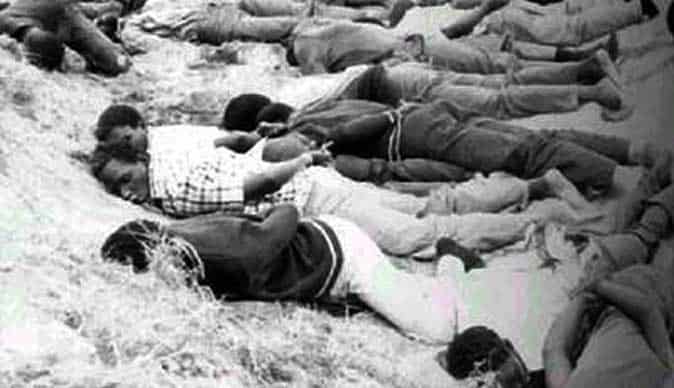The government through the Zimbabwe Media Commission (ZMC) has produced the “Gukurahundi Code of Conduct Pledge” which seeks to direct how media practitioners should report on hearings regarding the matter.
The pledge document invites all sorts of players, including government, police and constitutional bodies, to sign it and into newsroom operational matters, leaving journalists vulnerable to manipulation and gagging.
ZMC is a constitutional body charged with registering media and accrediting journalists, however has found itself taking part in the production of the document without consultation with relevant stakeholders.
This is viewed by many as designed to control how journalists should cover the Gukurahundi investigations, although it purports to be pledging to reaffirm ethical standards.
Traditional chiefs from Matabeleland (Phase I) and Midlands (Phase II) provinces will soon embark on hearings to investigate the scope and intensity of the massacres, but some of them want to bar the media and security services from the meetings.


This will further compromise the transparency, credibility and integrity of the process, which already has foreclosed truth-telling, accountability and justice by ensuring that it has to be restorative – not retributive – and without individual criminal responsibility.
Besides, analysts say chiefs do not have the rigorous intellectual and technical capacity to conduct an exercise of this complexity and magnitude.
While it is understandable why security forces should be barred to ensure victims are free to recount their stories and tell the truth without fear of retribution, it is untenable to try to ban media from the process.
Journalists have now been unnecessarily put in a tight corner to come up with new rules of coverage and special accreditation for it.
Without wide consultations, ZMC, which should not even be involved in such newsroom operational matters, is now spearheading the process with a few journalists grouped in a “technical committee”.
A lot of risks lie along this path. ZMC and the committee, for instance, came up with a consent form for victims to first sign before their stories are covered, an unprecedented gatekeeping exercise in professional journalism.
ZMC and journalists are also engaged in a needless debate about whether Gukurahundi was a genocide or not when experts have already concluded it is.
Journalists have no expertise to determine whether Gukurahundi was a genocide or not.
Experts in the area do have and they have already spoken on that.
Many journalists say there is no need for new rules and special access to cover Gukurahundi. A number of journalists have already been covering the killings for decades now.
Media organisations and various stakeholders already have established codes of ethics, frameworks and guidelines, and professional reporting standards which guide their work.
What is only needed is conflict-sensitive reporting workshops and not a new labyrinth of rules of coverage for journalists that will ultimately and inevitably result in impediments to the free flow of news and information, defeating the objective of the process.
Newshawks













